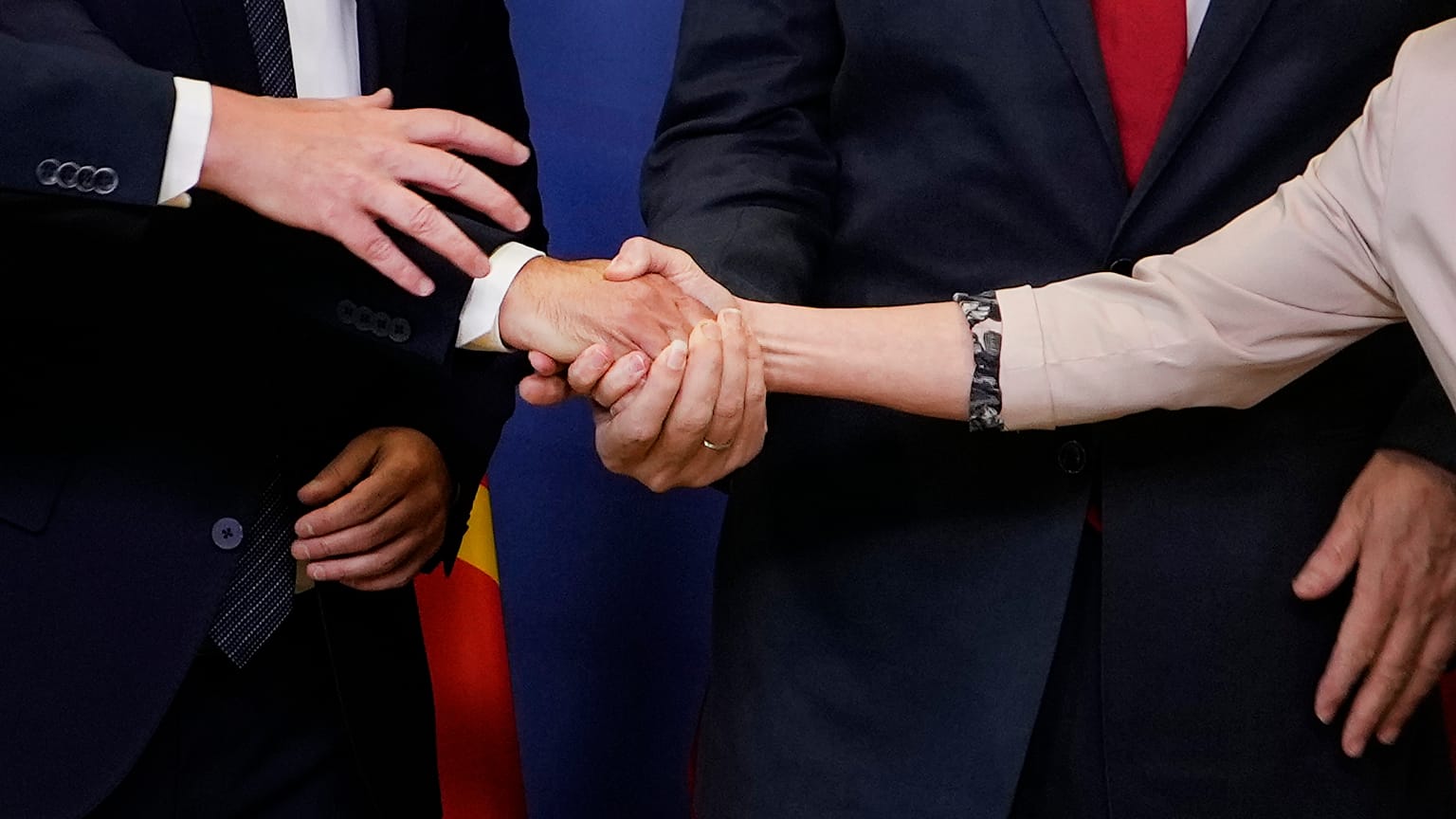Politics
EU Enlargement Faces Stalemate as Western Balkans Await Membership

The path to European Union (EU) membership for Western Balkan countries has encountered significant delays, leaving many hopeful nations in limbo. As of now, nine countries, including Albania, Serbia, and Montenegro, hold candidate status and are at various stages of the accession process. Despite this, the EU’s enlargement momentum has stalled, frustrating both leaders and citizens in the region.
Albanian Prime Minister Edi Rama has likened the situation to the play “Waiting for Godot,” emphasizing the prolonged wait for EU integration. “Albania (is) Estragon, the European Union is Samuel Beckett,” Rama remarked in June 2022. The accession process is particularly pressing for countries like North Macedonia, which has waited since 2004 to join the EU.
The last successful enlargement occurred in 2013 when Croatia became a member after a decade-long process. Comparatively, Romania and Bulgaria faced a 12-year negotiation period. The stagnation in the accession process reflects a complex interplay of political, institutional, and geopolitical factors.
Geopolitical Context and EU Priorities
The ongoing conflict in Ukraine has prompted a renewed interest in the enlargement process, with the EU viewing it as a strategic priority. Ursula von der Leyen, President of the European Commission, characterized the enlargement as a “reunification of Europe” in her recent State of the Union address. This rhetoric underscores the EU’s intent to stabilize the region and counter external influences, particularly from Russia.
Despite these ambitions, the practicalities of enlargement remain daunting. Teona Lavrelashvili from the Wilfrid Martens Centre for European Studies highlighted that the requirements for EU membership have become more stringent. Countries must meet the Copenhagen criteria established in 1993, which include governance standards, the rule of law, and adherence to democratic principles. The European Commission evaluates each candidate’s progress, with unanimous approval required from all 27 EU member states.
Concerns over the implications of enlargement are prevalent among existing EU members. Lavrelashvili noted that there is a fear that an enlarged EU may face even slower decision-making processes due to the need for consensus. The institutional framework of the EU complicates matters, as adding new members without reform could lead to more vetoes and gridlock.
Prospects for Change and Decision-Making
Next week, the European Commission will unveil the 2025 enlargement package, which will assess the progress of candidate countries. This year’s package is expected to include a “pre-enlargement policy review” to address the adaptations necessary for current EU members to integrate new states effectively.
The European Parliament advocates that “enlargement processes and European unification should proceed hand in hand.” It stresses that institutional and financial reforms are essential to ensure the EU’s capacity to absorb newcomers.
Possible solutions to break the current deadlock have emerged, including the idea of granting new members EU membership without full veto rights. While this proposal has yet to be formally discussed among EU countries, some experts, like Steven Blockmans from the Centre for European Policy Studies, suggest that it might gain traction.
Blockmans emphasized that such an arrangement could facilitate decision-making without infringing on EU law, as it would apply uniformly to all future candidates. He noted, “It would not create a breach because it would be applied to all future candidates joining the EU, so there would be no discrimination among them.”
As the EU navigates these complex challenges, the future of Western Balkan integration remains uncertain. The coming months will be critical in determining whether the enlargement process can regain momentum and deliver on the aspirations of the region’s citizens.
-

 Top Stories3 months ago
Top Stories3 months agoTributes Surge for 9-Year-Old Leon Briody After Cancer Battle
-

 Entertainment4 months ago
Entertainment4 months agoAimee Osbourne Joins Family for Emotional Tribute to Ozzy
-

 Politics4 months ago
Politics4 months agoDanny Healy-Rae Considers Complaint After Altercation with Garda
-

 Top Stories4 months ago
Top Stories4 months agoIreland Enjoys Summer Heat as Hurricane Erin Approaches Atlantic
-

 World5 months ago
World5 months agoHawaii Commemorates 80 Years Since Hiroshima Bombing with Ceremony
-

 Top Stories3 months ago
Top Stories3 months agoNewcastle West Woman Patricia Foley Found Safe After Urgent Search
-

 Top Stories5 months ago
Top Stories5 months agoFianna Fáil TDs Urgently Consider Maire Geoghegan-Quinn for Presidency
-

 World5 months ago
World5 months agoCouple Convicted of Murdering Two-Year-Old Grandson in Wales
-

 World5 months ago
World5 months agoGaza Aid Distribution Tragedy: 20 Killed Amid Ongoing Violence
-

 Top Stories4 months ago
Top Stories4 months agoClimbing Errigal: A Must-Do Summer Adventure in Donegal
-

 World5 months ago
World5 months agoAristocrat Constance Marten and Partner Convicted of Infant Murder
-

 Top Stories4 months ago
Top Stories4 months agoHike Donegal’s Errigal Mountain NOW for Unforgettable Summer Views









